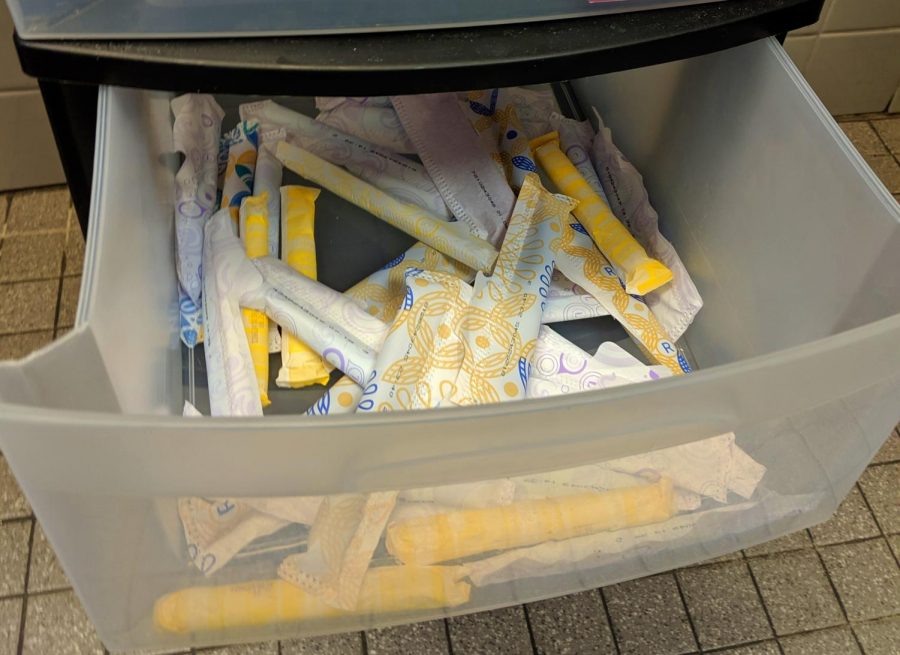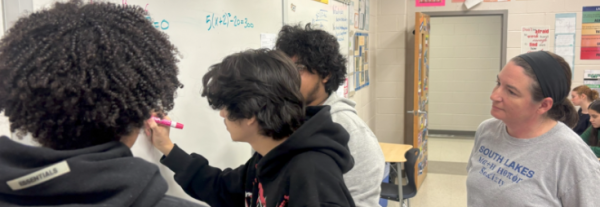South Lakes to get sanitary products in bathrooms
After years of requests and negotiations, the Fairfax County Public School (FCPS) School Board has approved the implementation of menstrual sanitary products in school bathrooms. In the past, students have had to go to school clinics in order to retrieve products such as pads. With the introduction of the new bill, the products will also be stored directly in the bathrooms.
These products will be made available in bathrooms in 37 schools across the county. They will be present in every level of education (elementary, middle and high school) that FCPS offers. South Lakes (SLHS) is one of the schools that will be part of the pilot program, as well as SLHS feeder middle school, Langton Hughes. The schools on this list are part of communities that have been considered in most need of the program based on economic assistance levels, but the list has also been further diversified to include more financial levels.
Students in Fairfax County have been demanding sanitary products in bathrooms for years. At South Lakes, numerous students have even focused on this as their sophomore English IB MYP projects. The final push that convinced the FCPS School Board was an initiative led by a group of girls at Justice High School in Falls Church. This organization “Girl Up” helped to supply bathrooms with sanitary products. Many students at Justice were unable to afford bringing products from home, and were frustrated that they had to miss class to go to the clinic in order to get supplies. The need that was expressed through this initiative spurred the School Board to act.
The School Board has funded and approved 37 schools to participate in our menstrual hygiene pilot program this year.
While every school currently provides these products in clinics, we hope to continue expanding pad and tampon access in restrooms in pursuit of menstrual equity. pic.twitter.com/wNeiDR2XEn
— Ryan McElveen (@RyanLMcElveen) September 16, 2019
The School Board has denied allowing sanitary products in school bathrooms for years, claiming that it will lead to messes and additional expenses. However, different student activist groups argued that the county was already paying for the supplies, and that the only additional expense would be storage bins or dispensers. The School Board approved $200,000 in funding for products and dispensers to 12 schools on July 25 of 2019, but has since expanded the program to more schools. A study by the Fairfax Times reported that “84 percent of the 1,000 teenagers surveyed, or more than four in five students, said they have either missed class time or know someone who has missed class time because of a lack of access to menstrual products.”
The School Board member, Karen Keys-Gamarra, who proposed the program, told the Fairfax Times, “I felt that we were placing an additional burden on girls that had to deal with something in the bathroom, just like everybody else, except we were requiring them to go this extra step. We needed to ask questions as to what that could create in terms of access. The issue, ultimately, as far as I’m concerned, is access to education.”
Helen is News Editor, Editor-In-Chief, founder and manager of the broadcasting department. She is the head manager of the Sentinel's social media. She...
















